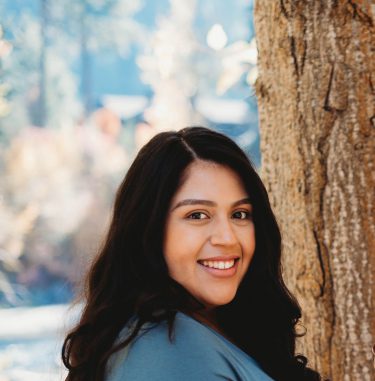Making a difference in the farmworker community

Karissa Sanchez
National Latinx Heritage month is celebrated September 15 – October 15 to to recognize the achievements and contributions of Hispanic American champions who have inspired others to achieve success. Read more about one of BSN graduates who is contributing to the health and well-being of people in her community.
Karissa Sánchez-Valdivia, BSN ’16, is working to make a difference in a community where healthcare isn’t readily accessible, but it’s most needed – in Yakima and with migrant farmworkers.
Coming from a family of migrant farmworkers who would travel yearly to follow the harvest, her family experienced first-hand the difficulties of accessing quality healthcare in a foreign language and culture. “It was ingrained in me from a young age that I needed to study and become educated, so I wouldn’t have to work in the fields my whole life. This birthed my desire to become a nurse,” said Sánchez-Valdivia.
Raised in Wenatchee, she went to Seattle to pursue her BSN at UW Seattle. Sanchez-Valdivia knew she would come back home to work in her community to be an advocate because she could relate to their struggles and speak the language.
Today, Sanchez-Valdivia works as a public health nurse for New Hope Clinic, a nurse-run clinic and small subset of the Yakima Valley Farmworker’s Clinic. New Hope Clinic provides primary care services to HIV/AIDS positive patients. “My connection and commitment to my worksite are rooted in my fascination with the science of HIV, and my desire to serve a population that has been historically underserved. I am proud to make a difference in my little part of the world,” said Sanchez-Valdivia.
The beginning of the HIV epidemic was a national crisis where patients were dying by the thousands, but it was not being addressed at a local or national level. Many nurses were afraid to care for these patients due to the unknown nature of the virus. Times have drastically changed. Although there has been a lot of work to destigmatize HIV, the historical trauma is still evident in many patients. Sanchez-Valdivia enjoys the intellectual challenge of applying her nursing expertise to better the health outcomes of patients. “The populations that are affected by HIV/AIDS tend to be very stigmatized and underserved. They have difficulty accessing and engaging in care, but I am grateful for the opportunity to serve at a clinic that believes in the importance of providing care in a positive, empowering atmosphere” said Sanchez-Valdivia.
Her advice for any nurse who has an interest or wants to go into rural health care is, “take the time to reflect on your intentions and the values that lead you to pursue a career in rural health. These same values will guide you when the work gets challenging. Burnout is real. But we need nurses who are willing to fight alongside our underserved communities. Be humble and willing to learn from your patients, and you will enjoy a deeply fulfilling career.”
-Kristine Wright